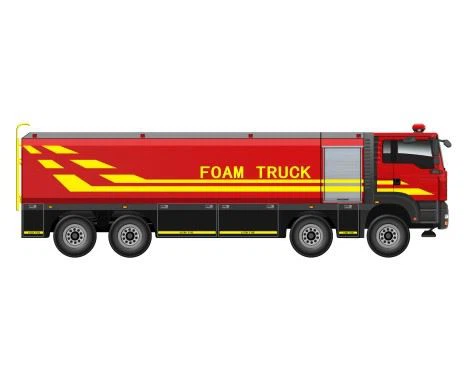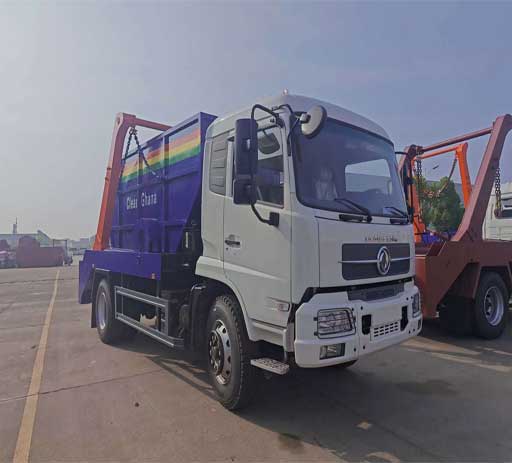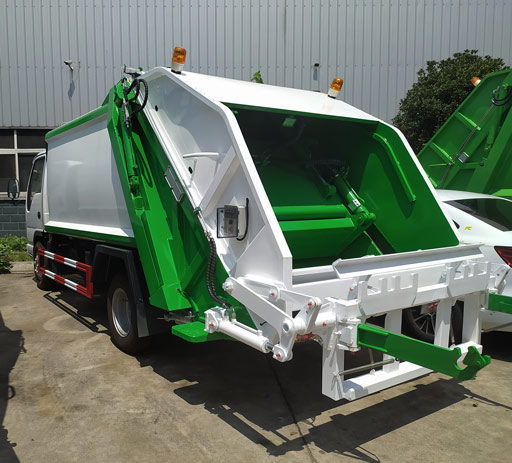LPG Truck: Everything You Need to Know About Liquefied Petroleum Gas Transportation

In recent years, the demand for clean and efficient fuel sources has led to the increased use of liquefied petroleum gas (LPG) in various sectors, including transportation. An LPG truck, designed specifically for transporting this energy source, plays a crucial role in ensuring that LPG is delivered safely and efficiently. This article will explore everything you need to know about LPG trucks, their benefits, specifications, safety measures, and more.
What is an LPG Truck?
An LPG truck is specially designed for transporting liquefied petroleum gas, which is a flammable mixture of hydrocarbons. These vehicles are equipped with tanks that store LPG in a liquid state under pressure, allowing for safe transport to various destinations. LPG trucks are versatile and can be used for commercial purposes, including fueling homes, vehicles, and industrial processes.
Types of LPG Trucks
| Type | Description |
|---|---|
| Bobtail Truck | A smaller vehicle designed for local deliveries, typically equipped with a tank capacity of around 1,000 to 3,000 gallons. |
| Transport Trucks | Larger vehicles designed for long-haul deliveries. These trucks can carry up to 10,000 gallons or more of LPG. |
| Dedicated LPG Trucks | Trucks that are built specifically for LPG transport, ensuring the highest safety and performance standards. |

Benefits of Using LPG Trucks
1. Environmental Friendliness
LPG is considered a cleaner alternative to traditional fuels like diesel and gasoline. When used in transportation, LPG trucks emit fewer greenhouse gases and pollutants, making them environmentally friendly. This can significantly contribute to reducing the overall carbon footprint of logistics operations.
2. Cost-Effectiveness
Using LPG can result in cost savings for businesses. The lower price of LPG compared to other fuel types and its high energy content can lead to reduced fuel expenses for trucking operations. Additionally, LPG trucks often have better fuel efficiency, contributing to overall operational savings.
3. Versatility

LPG trucks can serve various applications, from delivering gas for residential heating to fueling commercial and industrial facilities. Their versatility makes them an excellent choice for many businesses.
Technical Specifications of LPG Trucks
1. Tank Design and Capacity
The tank is a crucial component of an LPG truck. LPG tanks are usually constructed from high-strength steel or aluminum, ensuring durability and safety. Depending on the truck type, tank capacities can vary widely:
- Bobtail trucks: 1,000 – 3,000 gallons
- Transport trucks: Up to 10,000 gallons or more
2. Engine and Performance
LPG trucks can come equipped with specialized engines designed to operate efficiently on propane. These engines often have lower compression ratios than traditional gasoline or diesel engines.
Performance Features
- Improved torque and acceleration
- Lower noise levels
- Fewer emissions
Safety Protocols for LPG Trucks
1. Proper Training and Certification
Drivers of LPG trucks should undergo specialized training to understand the risks associated with transporting flammable materials. Certifications can help ensure that drivers possess adequate knowledge of safety protocols.
2. Regular Maintenance Checks
Routine inspections of the truck and tank are vital to ensure that there are no leaks or damages. Regular maintenance should include checks for:
- Tank integrity
- Fuel lines and connections
- Safety relief valves
3. Emergency Response Planning
Having a well-defined emergency response plan is crucial. This includes knowing how to handle accidents and spills, as well as having emergency contact numbers readily available. Drivers should be trained in emergency procedures and first aid.
Regulations and Standards for LPG Trucks
The operation of LPG trucks is regulated by various local, state, and federal guidelines. Some of these regulations include:
- Department of Transportation (DOT) guidelines
- Occupational Safety and Health Administration (OSHA) standards
- National Fire Protection Association (NFPA) codes
Compliance with these regulations ensures the safety of the drivers, the public, and the environment.
Practical Examples of LPG Truck Usage
1. Residential Deliveries
Many companies utilize LPG trucks to deliver gas directly to residential customers. This is particularly common in rural areas where natural gas pipelines may not be available. The efficiency of these trucks allows for timely deliveries, ensuring customers have a consistent fuel supply for heating and cooking.
2. Industrial Applications
Various industries depend on LPG trucks for transporting gas to their operations. For example, restaurants may require regular deliveries to fuel their cooking equipment, while factories might use LPG for heating processes. These industries benefit from the reliability and cost-effectiveness of LPG fuel.
Future Trends in LPG Truck Transportation
1. Technological Advancements
The LPG trucking industry is witnessing advancements in technology that enhance safety and efficiency. Innovations such as GPS tracking, fuel management systems, and automated safety checks are becoming increasingly common.
2. Shift Towards Renewable LPG
With the growing focus on sustainability, renewable LPG (derived from biomass) is emerging as a viable alternative to conventional LPG. This shift promises to further reduce carbon emissions and position LPG trucking as a continued player in the clean energy landscape.
FAQs About LPG Trucks
1. What is the difference between LPG and propane?
LPG, or liquefied petroleum gas, typically refers to a mixture of propane and butane. Propane is one component of LPG that is often used for various applications, including heating and transportation. Essentially, all propane is LPG, but not all LPG is propane.
2. Are LPG trucks safe?
Yes, LPG trucks are designed with safety in mind. They adhere to strict regulations and standards, and drivers are trained to handle the transport of flammable materials responsibly. Regular maintenance and safety protocols further enhance their safety.
3. How far can an LPG truck travel on a full tank?
The distance an LPG truck can travel on a full tank depends on factors such as the truck’s size, load capacity, and driving conditions. Typically, larger transport trucks can travel between 300 to 700 miles on a full tank of LPG.
4. Can LPG trucks be converted to run on natural gas?
In many cases, LPG trucks can be converted to run on natural gas, although it may require significant modifications to the engine system. It is advisable to consult with a qualified technician to determine the feasibility of such a conversion.

5. How does LPG affect engine performance?
Using LPG as a fuel can result in improved engine performance characteristics, such as reduced noise levels and fewer emissions. However, any potential modifications to the engine must be carefully considered to ensure optimal efficiency.
6. What are the environmental benefits of LPG trucks?
LPG trucks produce fewer greenhouse gas emissions compared to diesel or gasoline trucks. This reduction in emissions helps combat air pollution and contributes to a cleaner environment, making LPG an eco-friendly alternative for transportation.
